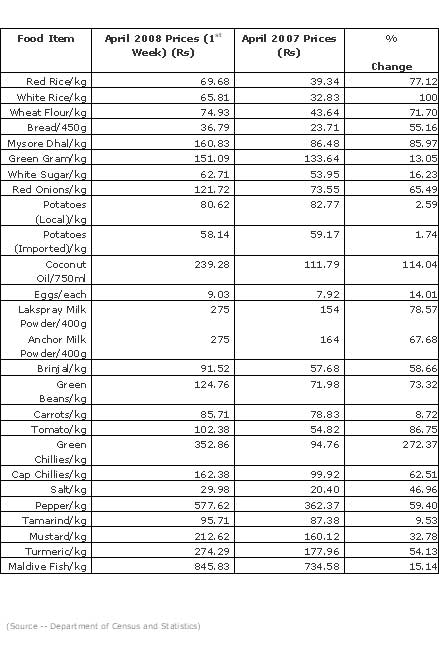
Average wage earners struggle to follow New Year customs
As average wage earners in the country struggle to follow the Sinhala and Tamil New Year customs with a sharp jump in the price of daily essentials, including rice, wheat flour, bread, milk powder and fuel – the only positive factor is that betel prices have come down. Betel prices have come down to Rs. 98.70 from Rs. 147.74 per 100 leaves in April last year. S. Wimalasena, a driver attached to a Ministry, told The Sunday Times FT that due to the rising costs of everything, ‘we can only follow the custom of offering betel to the parents and elders which is considered as a token of love and gratitude.’ Food is the essential part of New Year festivities in Sri Lanka. Locals prepare sweet meats such as mung kavum, konda kavum, kokis and unduvel and the old tradition of preparing Kiributh (milk rice) with rice from the new crop. But consumers say they have found it extreme difficult to follow this New Year’s customs as the price of rice, the staple food in Sri Lanka, has nearly doubled in the past three months. The widely eaten samba rice almost doubled in price from 48 rupees per kilogram last November to 85-100 rupees in January. Currently, the price is hovering around 70 rupees. The price of a kilogram of red raw rice has been increased by 77 percent from Rs. 39.34 in April last year to Rs.69.68. K.Gunapala, a clerical assistant attached to Education Department, said that even to prepare kiribath they have to spend at least Rs. 110 per kg as the price of a coconut has also increased from Rs 19 in April last year to Rs.38 this month. Fuelwood prices have also recorded a sharp jump from Rs. 276.25 for 50 kilograms in April last year to Rs.340 this year. He added that they spent around Rs. 58.00 for the preparation of kiribath last year. The cost was increased by around 50 percent but his monthly wage of Rs. 7,200 cannot bear this cost. Surangani Perera of Moratuwa, a typist of a private firm, said that this New Year they cannot prepare sweet meats as the price of wheat flour has been increased from Rs. 43.64 in April last year to Rs.74.93 at present. She added that the price of sugar, treacle, coconut oil green gram and other ingredients had skyrocketed to unbearable proportions. The price of a kilogram of sugar has been increased from Rs. 53.95 to Rs.62.71, treacle to Rs. 250 per bottle and green gram from Rs.133.64 to Rs. 151.09. She said that they have to spend at least Rs 350 on average per (reasonable quantity) sweet meat such as mung kavum, athirasa konda kavum kokis and unduvel. In the meantime supermarkets and bakeries have gotten in on the action. During the New Year season, counters are loaded with all the traditional sweets and savories. Kavun, kiri dodol, bibikan, kokis, murukku, waday and an assortment of cakes are piled high and quite popular with the masses for a few reasons. First off, this appeals to those who don't have the time or the inclination or more importantly, the know-how, to make these types of foods. Popping into a shop and purchasing a batch, whether it's for home or to take to someone's, is always a popular option. Another reason people opt for buying the ready made food is that it is cost efficient. Instead of getting the raw ingredients which may prove more costly, people can choose to buy as little or as much as they want whether it be ten, fifty or a hundred. However, even these are not cheap. On average, a kavun is going for Rs.15 and 225 grams of kiri dodol is Rs.70. A packet of kokis is around Rs.14 and love cake is Rs.202 for approximately a quarter of a kilo. Then there are those who would not think of celebrating the New Year with store-bought food. Those struggling to make ends meet in their day to day life will take loans and even go into debt to celebrate the New Year. |
|
||||||
|
||||||
| || Front
Page | News
| Editorial
| Columns
| Sports
| Plus
| Financial
Times | International
| Mirror
| TV
Times | Funday Times || |
| |
Reproduction of articles permitted when used without any alterations to contents and a link to the source page.
|
© Copyright
2008 | Wijeya
Newspapers Ltd.Colombo. Sri Lanka. All Rights Reserved. |
